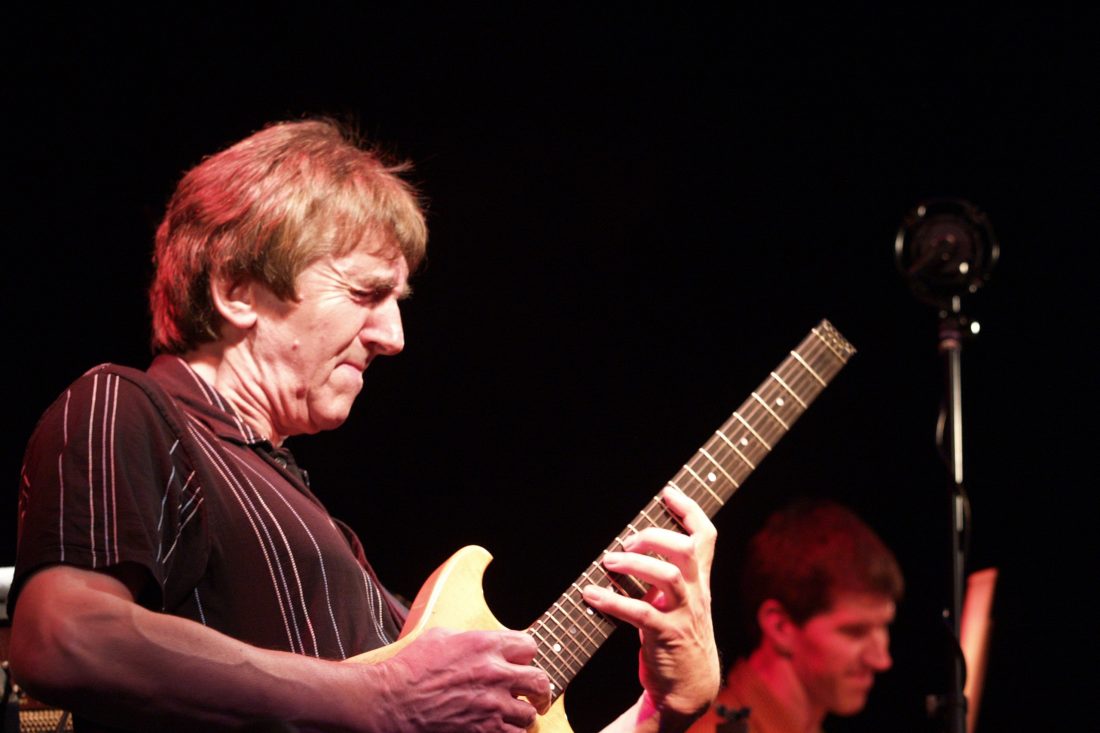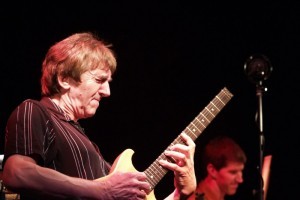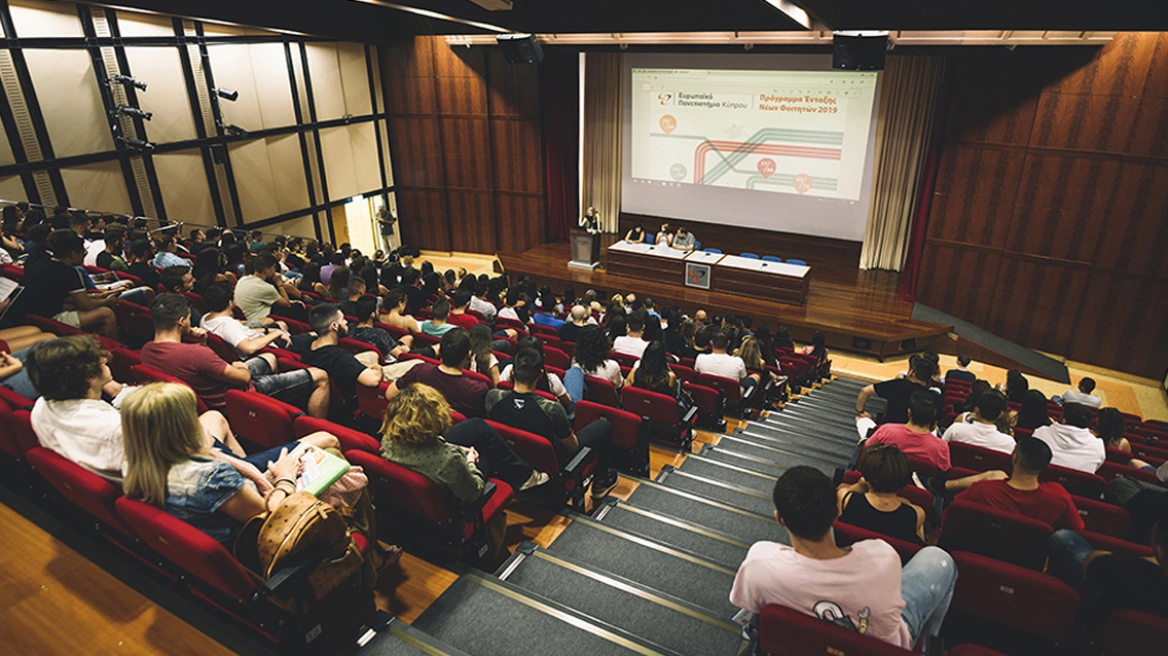Hunter S. Thompson had it right when he said “The music business is a cruel and shallow money trench, a long plastic hallway where thieves and pimps run free, and good men die like dogs.” To which I’d add, the mediocre and banal are celebrated and remunerated, while the sublimely gifted and ever-searching are routinely marginalized.
Allan Holdsworth, who died at the age of 70 on Easter Sunday, was the most profoundly innovative electric guitarist in the post-Jimi Hendrix world. And though you’ve likely seen tributes to the British guitarist and composer flooding the internet over the past few days, the sad truth is that, despite his prodigious talent and profound influence on the instrument and all who play it, Holdsworth barely made a living from music. His career is one marked by consistent brilliance, and just as consistent struggle.
This fact makes the loss of Holdsworth even more poignant for so many of us who loved his music, a body of work spanning his contributions to dozens of evergreen recordings beneath the banner of other jazz and rock bands and artists (UK, Soft Machine, Bruford, Gong, Jean Luc Ponty, Tony Williams Lifetime, Stanley Clarke, so many others) and a subsequent career as a bandleader that was still going strong when Holdsworth died.
Why was Holdsworth destined to fight tooth and nail for a financially stable career? If you search YouTube for an early 1980s documentary called “Tokyo Dream,” you’ll witness, right around the 20-minute mark, an interviewer posing the Maestro a question.
“A lot kids out there are into your music,” she begins. “Um, how would you describe your music and your musicality?”
Look closely, and you’ll see Holdsworth flinch, though he remains friendly.
“It’s hard…” he said, with thinly veiled exasperation. “The kind of music we play has a lot of roots in rock, but at the same time, (there are) elements of jazz… but not in any traditional sense of jazz. So… the problem we have is that, some people call it ‘too rock’ to play on a jazz station, and it’s ‘too jazz’ to play on a rock station. So it’s difficult. It’s difficult to make it playing this kind of music.”
This was in 1984, right around the time that high-profile players like Eddie Van Halen, Frank Zappa and Alex Lifeson (Rush) were mentioning Holdsworth’s name repeatedly in interviews, hailing him as the most profoundly forward-looking musician of the age. Such praise certainly led some eager listeners Holdsworth’s way. But it was never enough to push him toward the heights attained by those doing the praising. Holdsworth would remain, sadly, a cult artist for the rest of his days.
His genius was dedicated to creating a form that fit no demographic that was easily sellable by short-sighted businessmen. As a result, his audience consisted of mainly adventurous musicians and fans of adventurous music. (Yes, we’re here, and we will represent, but let’s face it – we’re not the majority.)
On occasion, it would become clear during an interview how much this bothered Holdsworth. And yet, despite his immense talent – and the fact that his loyal audience basically saw him as a deity – Holdsworth remained humble, refusing to buy the hype, practicing untold hours daily, pushing himself as a composer, delving deeply into technological innovations alongside harmonic ones, and graciously shrugging off the praise.
Holdsworth and various permutations of his solo bands played in Buffalo somewhere in the area of a dozen times over the 26 years I’ve lived here. I took my then 11-year-old son to see one of these shows – a September 2010 stop at the Tralf Music Hall – shortly after I’d first played him Holdsworth’s music, which blew his budding young guitarist’s mind.
We met the man at the bar, chatted about guitar, shared a pint. (By all accounts, Holdsworth loved his beer, preferably the English variety.) My son (no pint for him) told Holdsworth he was the greatest guitarist he’d ever heard, to which the man laughed, and replied, “Stick with it, you’ll be better than me in no time!” This was no display of false modesty. The guy was supremely humble, funny, warm and engaging.
But my son was right. Holdsworth was the greatest. His complex yet gorgeous and embraceable chord progressions, his long, fluid, legato guitar lines, his daring approach to improvisation, and the ease with which he married jazz harmony to tones more often associated with rock put the lie to the idea that jazz fusion was somehow a lesser art form that satisfied neither as rock nor as jazz. Holdsworth’s art was a gift to the world of music.
It’s heartbreaking that an artist of such brilliance, one who worked tirelessly for 50 years, would die without receiving just financial reward for his efforts. Yet one suspects that Holdwsworth would brush away such a notion.
Holdsworth’s children started a GoFundMe page on Monday, hoping to raise $20,000 to cover their father’s funeral expenses. That goal already has been exceeded, five times over which suggests that those whose hearts were truly touched by Holdsworth’s music never forgot him. And never will.
Ask me anything
Explore related questions






